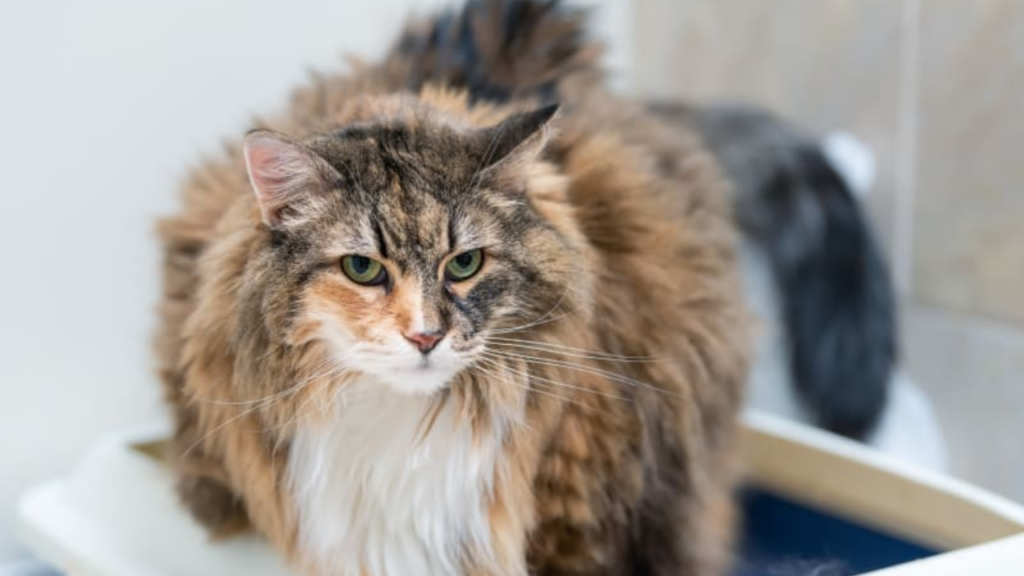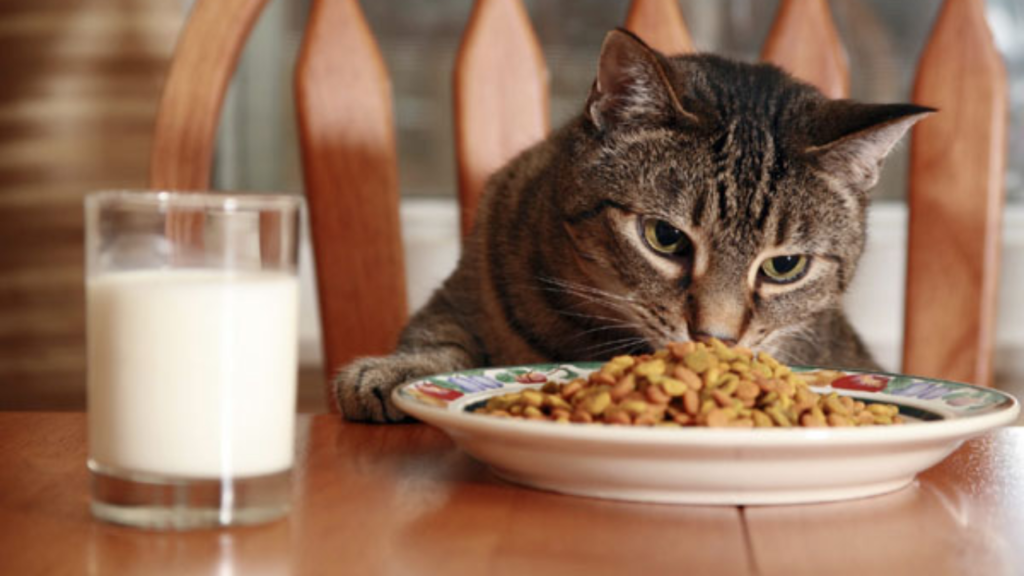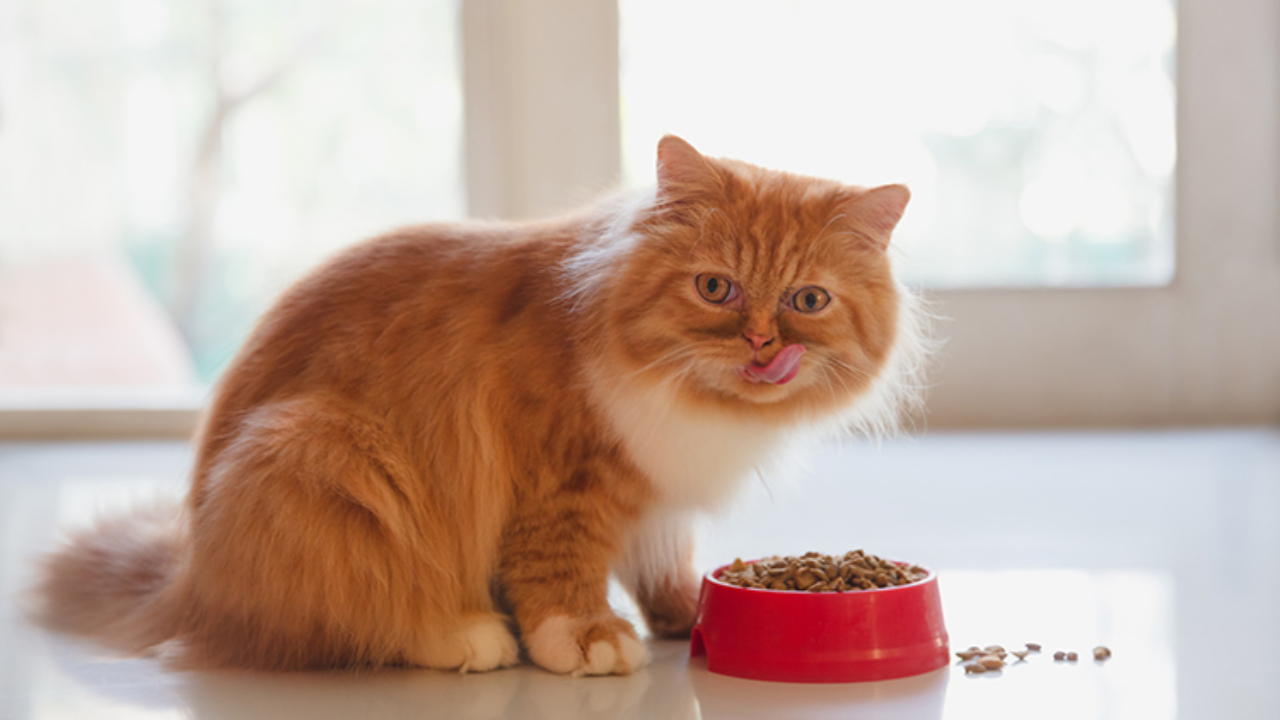Cats being constipated can play a big role in diet. Fiber- and moisture-rich foods can contribute to aiding digestion. A well-balanced diet will surely tell the difference in dispelling or making sure your cat suffers less discomfort from constipation.
It is pretty distressing to see as a cat owner that your furry friend has constipation. You desire the best foods that will soothe their digestive system and keep them happy and healthy. In this article, we’ll explore some rather simple diet changes that can help resolve a cat’s constipation issues.
Understanding Constipation in Cats

Constipation in cats essentially means a problem in passing stools or less frequent passage of stools. This generally causes discomfort and even pain for the cats and, if not treated very well, potential loss of their health in the worst possible scenario.
What is Feline Constipation?
Constipation is the lay term applied to sore, hard, dry stool that can be painful to pass. She might strain at the litter box, spend more time there, or go several days without passing a stool. Some common reasons include diet, dehydration, and potentially underlying health concerns.
Common Causes of Constipation in Cats
There are several reasons cats get constipated. One of the most common is that a cat’s diet has not enough fiber, and without sufficient amounts of it, the digestive system slows down. Dehydration can also cause great problems; if your cat is not drinking enough water, stool becomes dry and hard. Also, cats that are not moving around much may be contributing to this problem as well, since exercise facilitates bowel movements.
Symptoms to Look Out For
One must identify the signs of constipation in a cat. A straining cat passing stools or a longer-than-usual period in the litter box would be seen. Avoidance of the litter box and very tiny, hard pellets of feces would be possible traits. Some other serious symptoms include swelling of the tummy, being lethargic, and having a loss in appetite. All these symptoms require immediate attention to ease the animal to free itself.
The Role of Diet in Managing Constipation

Diet has been and will always remain the most critical point of addressing constipation in your cat. What goes into your cat’s mouth can either make things better or worse.
Dry Food vs Wet Food
| Factor | Dry Food | Wet Food |
| Moisture Content | Low | High |
| Benefit | Convenient, easy to store | Provides hydration, softens stool |
| Downside | Can lead to dehydration | Can be more expensive |
| Recommendation | Balance with wet food | Should be a part of daily diet |
Balancing Dry and Wet Foods in Feline Diet
Mixing wet and dry food will equalize the moisture content in your cat. Dry food is neat and easy to take, but it doesn’t provide moisture, and this will lead to dehydration and most likely constipation. Wet food contains more moisture; that softens the stool and keeps a cat hydrated. When balanced, these can help your cat digest much better.
How Diet Affects Digestive Health in Cats
Just as it is with human beings, what you eat determines your digestive system. Cats require a diet that is well balanced and full of such dietary fiber. This encourages them to pass stool more regularly. When they miss out on the right nutrients, and their digestive system has slowed to come to a grinding halt, then it is bound to lead to constipation.
Why Fiber is Essential for Cats
Fiber is necessary for a normal flow of life through the digestive system of your cat. It creates bulk to the stool, making it easy for it to pass. While cats might not require as much fiber as many other animals do, a little amount can make all the difference between poor and good digestive health.
Hydration and Its Role in Digestive Health
Hydration of water helps to hydrate your cats, making it an essential tool for the digestion of your feline friends. The cat may end up suffering from constipation and even develop hard stools if it suffers from dehydration. Hydration can easily be said to be the most effortless way of preventing this condition in a cat: Wet meals may supplement dry food for them to get more moisture.
Best Foods for Cats with Constipation

Some food can help with digestion and ease constipation in your kitty. Here are some of the best food options to consider.
High-Fiber Cat Foods
- Pumpkin (rich in fiber and gentle on the stomach)
- Psyllium husk (helps bulk up stool)
- Specialized high-fiber cat foods
Higher fiber cat food helps ensure your pet stays with good digestion and prevents constipation. Foods that contain pumpkin or psyllium husk also help prevent constipation, as these will bulk up the stool enough to pass more easily. Bring your vet along for the best high-fiber cat food for your pet.
Wet Food: What Moisture-Rich Foods Do to Help with Constipation?
- Foods with natural probiotics
- Probiotic supplements (vet-recommended)
- Probiotic-enriched commercial cat food
Wet foods can also be very helpful to constipating cats. The wet in the food maintains the hydration level of your cat, which will also soften their stool. This way, they will be able to pass it easily with regularity. If your cat is used to eating dry foods, you can gradually introduce wet foods into his diet as well. Just pour it on his dry food and gradually increase it.
Cat Foods with Probiotics for Digestive Aids
- Pumpkin (fiber-rich and easy on digestion)
- Psyllium husk (absorbs water, bulks up stool)
- Canned or cooked plain pumpkin
Probiotics are also excellent inclusions for your cat’s diet. They help ensure the healthy balance of digestion and even intestines within the body through beneficial bacteria. Probiotic-enriched cat food may come in handy in keeping a healthy digestive system and helping against constipation. Look for a cat food naturally probiotic-enriched or discuss this option with your vet.
Some Natural Remedies Pumpkin Psyllium Husk Other Options
Natural remedies also try to surpass the challenge of constipation, which are many of them, really widely used and employed; they’re high in fiber, for starters, and generally non-irritating to the feline’s stomach. The most commonly known natural remedy is probably the psyllium husk-a water-absorber that aids adding bulk to stool. Remember; always consult your vet first before introducing anything new in your cat’s diet.
Avoid Foods in the Case of Cat Constipation
There are those foods that work in your favor and those that worsen conditions. Here are a few cat foods to avoid.
Low-Quality Commercial Cat Foods
- Foods containing fillers (corn, soy, wheat)
- Low-fiber cat foods
- Cat foods with low moisture content
Low-grade cat foods have fillers comprising corn, soy, or wheat, which are low nutritive content and might worsen constipation. Filler components do not contribute to healthy digestion and will make things worse for your cat. Feed your cat on high-grade cat food but emphasize that there is more meat included as the first ingredient.
Dairy Products and Digestion Impact
Although milk images with cats lapping it up are found anywhere, most cats are lactose intolerant. By and large, most adult cats are lactose intolerant and not so well-prepared to digest milk and other dairy products. As a result, feeding them products from the dairy family causes digestive upset, which manifests as diarrhea or constipation in cats.
Worst Foods That Can Cause Constipation in Cats
- High-fat foods (cheese, processed meats)
- Dairy products (for lactose-intolerant cats)
- Low-fiber foods (some human snacks)
Some human foods, too, cause constipation in cats. Avoid high-fat or low-fiber foods like cheese and processed meat. These delay digestion and create difficulties for the cat to pass stools.
Lifestyle Tips to Support Digestive Health

Besides diet, some life habits help the cat avoid constipation and ensure a well-functioning system of the intestines.
Encourage Your Cat To Exercise Daily
Exercise is just one of the lifestyle exercises that would encourage your pet’s digestion system to start working. Engage that feline cat to play and chase some toys or climb to stay active. A couple of minutes a day can do a lot for any pet.
Importance of Intellectual and Physical Stimulation
Cats require mental as well as physical stimulation for healthy life. Sluggish digestive processes from boringness are caused by inactivity. You can make your cat play with toys that can develop some games, such as pouncing, but also more challenging ones like puzzle feeders that will keep him from becoming constipated.
Creating a Digestive-Friendly Routine
You need to put feeding time, playtime, and bathroom break on a routine schedule. Everything has to be constant-you do not want to compromise the digestive system of the cat for constipation.
When to See a Vet

However, sometimes no matter how hard you try to look after your cat, constipation remains a problem. Then go to a vet.
Red Flags That Indicate Serious Issues
If your cat has not passed stool for a few days or she is painful to touch, it is vet time again. Vomiting, bloating, or loss of appetite would also get you to a vet. These might be symptoms of something more serious.
Diagnostic Tests and Treatment Options for Constipated Cats
Consult your vet to order some diagnostic test, such as x-ray or blood work, to try to determine the cause of your cat’s constipation. Worst cases can have medicines or other treatments through the medicine or surgery method to relieve a blockage and consequent further complication.
Conclusion
Constipation is uncomfortable and painful for your cat, and if the diet and care that you give is proper, it does make a world of difference. So one of the main strategies is to enhance the intake of high-fiber foods and then wet food to enhance water intake, accompanied by other natural remedies like pumpkin or psyllium husk.
A good way to monitor the litter box behavior and general condition of your kitten will help you identify potential problems early. If your kitten has persistent constipation or any symptom such as vomiting or lethargy, the veterinarian should be consulted at once. Sometimes, a case of constipation might be accompanied by an underlying condition that might call for urgent treatment.
It is well-known that a healthy diet with regular exercises and appropriate fluids helps the kitten live healthily, comfortably, and happily. A little love and care make such a huge difference in the world for your cat.
FAQ’s
1. How to deconstipate a cat fast?
Answer: Giver canned pumpkin or small amount of olive oil to soften the stool.
2. How to get a cat to poop?
Answer: Feed them high-fiber diet and increase the fluid consumption by giving water.
3. What food makes cats poop less?
Answer: Foods with low fiber, foods with substantial fillers such as corn, soy, and similar foods will make your pet cat infrequently pass stools.
4. Which is the best stool softener for cats?
Answer: According to vets, the stool softener that is safe and most effective is the lactulose.
5. What should I feed my constipated cat?
Answer: Feed them high-fiber foods such as canned pumpkin, wet cat food or specific high-fiber cat food.
Meta Description
“Find out the best high fiber and wet foods for the relief of constipation in cats. Learn what diet, hydration, and exercise can do for your cat’s digestive health.”
